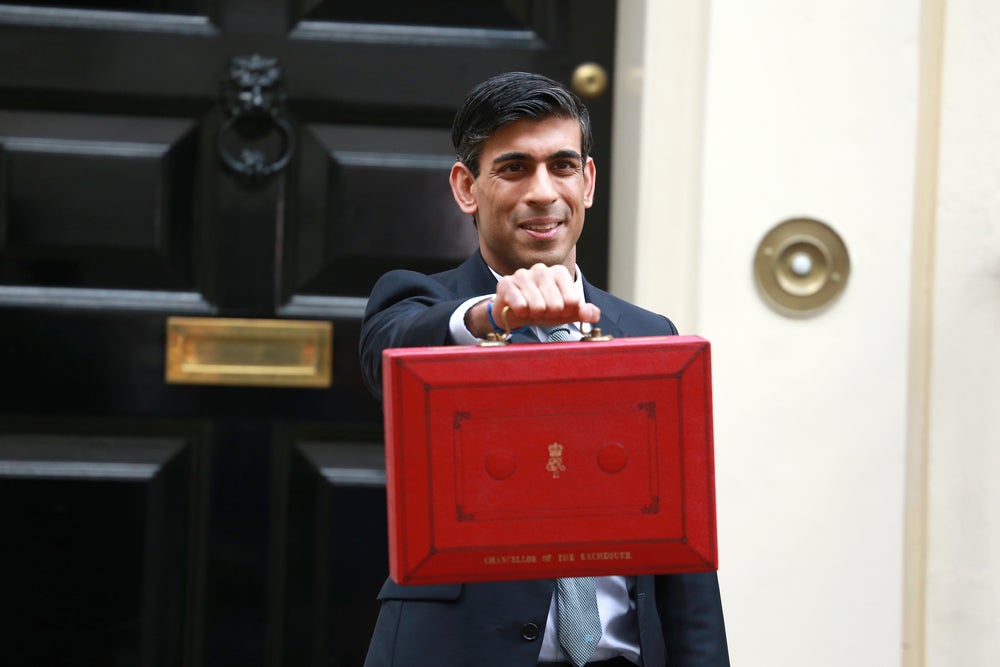
Chancellor of the Exchequer Rishi Sunak has revealed the details of the 2021 Budget, outlining the government’s recovery and spending plans for the next 12 months.
The key points from the 2021 Budget affecting the automotive industry:
- The furlough scheme will be extended until the end of September. After July, businesses will be asked for a 10% contribution, rising to 20% in August and September.
- Business rates holiday will be extended through to the end of June, while 5% reduced rate of VAT will be extended for six months to 30 September, followed by an interim rate of 12.5% for another six months.
- Introduction of a Recovery Loan Scheme. Businesses of any size can apply for loans from £25,000 up to £10m, through to the end of 2021.
- Restart Grants will see non-essential retail businesses receive grants of up to £6,000 per premises.
- Corporation tax will rise to 25% in 2023, for businesses with profits of over £250,000.
- Planned increase in fuel duty has been cancelled.
- Apprentice incentive payments will be doubled to £3,000.
Industry reaction
Mike Hawes, SMMT chief executive, said: “Today’s Budget provides some encouragement to an automotive sector hit hard by the pandemic and additional trading costs but it falls short of the support needed to transform the industry and market to the net-zero future to which both the government and industry aspires. Confirmation that the industry’s calls for the furlough scheme to be extended until the end of September have been heeded and is extremely welcome as both the automotive manufacturing and retail sectors have suffered a massive fall in demand over the past year with showrooms still closed and supply chains disrupted.
“Measures to support investment and upskilling are of vital importance to the sector but more is needed if the government’s green recovery plan is to be a success. Ensuring the UK has the most competitive environment globally for business investment is essential so, whilst we welcome in principle the announcement of a ‘super deduction’ for investment, it is not clear if it will work for manufacturing and plant and machinery so we now seek the fine detail and, ultimately, business rates reform to encourage investment.
“In this crucial year, with COP 26 in the autumn and the sector facing a mammoth task in decarbonizing within just nine years, we had hoped to see more measures to support the transition. This is an opportunity lost, so we look ahead to this year’s Comprehensive Spending Review for the commitment to the infrastructure, incentives and wider competitiveness measures that will enable the UK automotive industry to be the global leaders in the shift to net zero mobility.”
How well do you really know your competitors?
Access the most comprehensive Company Profiles on the market, powered by GlobalData. Save hours of research. Gain competitive edge.

Thank you!
Your download email will arrive shortly
Not ready to buy yet? Download a free sample
We are confident about the unique quality of our Company Profiles. However, we want you to make the most beneficial decision for your business, so we offer a free sample that you can download by submitting the below form
By GlobalDataSue Robinson, chief executive of the NFDA, said: “Following our requests for a business rates holiday extension submitted ahead of the budget, today’s announcement is positive, as it will continue to support retailers while the economy reopens, and we come out of the pandemic.
“Due to the significant challenges facing our economy, the announcement about the rise in corporation tax was not unexpected. However, the fact that the increase will not come into effect until 2023 will give businesses some time to start to recover from the current disruption.”
Stephen Haddrill, director general of the FLA, said: “As lockdown restrictions begin to ease, there is a real need to instil confidence among consumers and businesses to ensure that any recovery in the economy can be sustained.
“The short-term certainty offered by the extension of furlough into September to help employers and employees is welcome – as is the Chancellor’s support for an investment-led recovery.”
Seán Kemple, managing director at Close Brothers Motor Finance, commented: “Car dealers across the UK will be impacted by the Chancellor’s decision to raise corporation tax from 19% to 25% from 2023. It’s been a difficult year for dealers, who have had to navigate through showroom closures and a surge in digitalisation, all while facing production delays that have limited stock availability. Increased tax will put more pressure on bottom lines, so the government will need to provide proper support and communication for those struggling.
“The auto industry is vital to the economy more broadly, and as the backbone of the car industry, getting dealers back up and running must be front and centre of the government’s plans.”
Ashley Barnett, head of fleet consultancy at Lex Autolease, said: “An alternatively-fuelled future simply can’t happen overnight. The affordability of EVs is a key barrier towards mass adoption and for some people, an ICE vehicle remains their only option.
“Against the backdrop of the pandemic, many people are still using cars as a safer mode of transport and any rises would feel counterproductive at this moment in time. As momentum continues to shift away from petrol and diesel, a future rise in the 10-year fuel duty freeze feels inevitable and will help fund investment in greener alternatives.”
Sepi Arani, commercial lead at carwow, said: “The announcement from the Chancellor of the Exchequer today that fuel duty will once again not increase marks the 10th year that fuel duty remains frozen. While fuel has decreased in necessity over the past 12 months, with lockdown set to lift over the coming months – does this indicate that the government sees increasing this tax a far less lucrative option as we witness the rise of EV’s? Either way its positive to see that British motorists are not, at least for now, bearing the weight of budget challenges.”
James Fairclough, chief executive of AA Cars, said: “Crucially the Government’s roadmap out of lockdown has given dealers something to plan for. While their reopening dates are not set in stone, dealerships at least have the certainty they need to fine-tune their sales strategies ahead of the market unlocking.
“The extension of the Business Rates holiday in the Budget will also give dealers a vital breathing space. If the lockdown restrictions are eased on schedule, dealers will be able to reopen safe in the knowledge that they won’t need to pay full rates again until July at the earliest – and this should give them time to get back on their feet before the next bill is due.
David Bushnell, principal consultant at Alphabet (GB), said: “Following the Government’s announcement to increase corporation tax to 25% from 2023, any company that runs vehicles above 50g/km will be impacted. Businesses need to assess their fleet strategies and place greater emphasis on the whole life cost of the vehicles they operate.
“This will be crucial to creating cost savings for businesses, and electric and plug-in hybrid vehicles will play a central role in this. These vehicles should no longer be considered alternative fuels but instead should form a natural part of the next cycle of vehicles for company car drivers. This will not only result in cost savings for companies and drivers alike, but will also keep them one step ahead of the national timeframe for electrification.”






